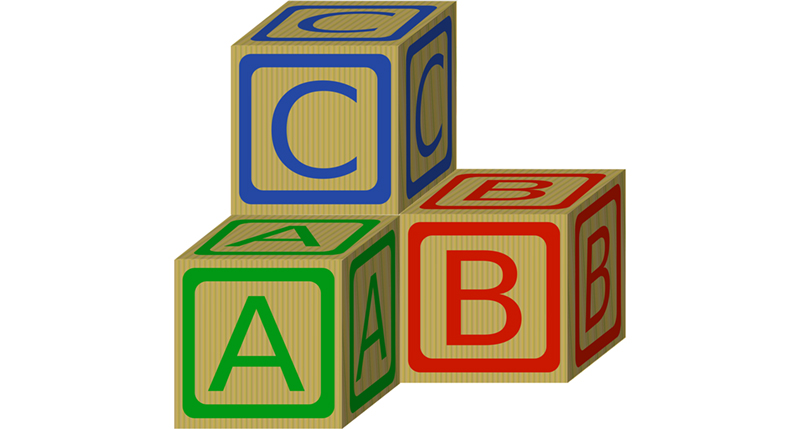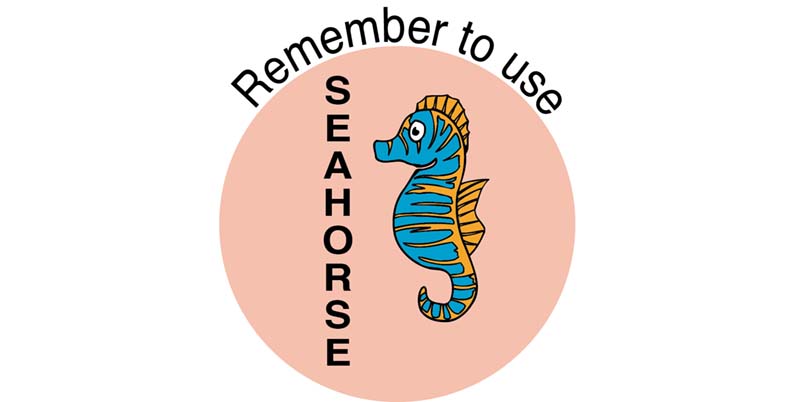Expanding Your Vocabulary
Building vocabulary is a powerful way to enhance your life and career. A large vocabulary is often seen as a mark of intelligence and can benefit you in school, at work, and socially. You will be able to understand concepts better and get your thoughts and ideas across more effectively.
Although a limited vocabulary is not necessarily a barrier to reading fast, the wider your vocabulary the easier it will be to comprehend what you are reading. By memorising new words and understanding the building blocks of the language including Latin and Greek, you can unlock the meanings of hundreds or even thousands of words.
Origins

The vocabulary of Modern English is approximately a quarter of Germanic / Scandinavian origin and two-thirds derived from Romance languages (Latin, French, Spanish, Italian). There are other imports from Greek in science and technology and with considerable borrowings from more than 300 other languages. As a result, the English language is likely to contain the most words of all languages, according to the Oxford English Dictionary, and estimates for the number of words range from one to two million.
The first inhabitants of the British Isles were Celtic tribes collectively known as the Britons. Between 43 and 409 AD Britain was a province of the Roman Empire (with the exception of most of Scotland then called ‘Caledonia’) and hence Latin was the language, at least of the ruling elite.
In the mid 5th to 7th centuries AD Anglo-Saxon migrants (from what is now Germany, Denmark and the Netherlands) settled in the British Isles. Their language, now called Old English, displaced the Celtic languages and British Latin. Celtic place names sometimes persist. I live near Caer Caradoc which is an Iron Age hill fort. Caradoc is a Welsh name of Celtic origin meaning "amiable."
The 8th and 9th centuries saw colonisation by Scandinavian Vikings in parts of Britain bringing many Old Norse words. Torpenhow Hill in Cumbria is an example to this importing of words. Tor, pen, and how can all mean "hill" in different languages (torr from Old English, penn from Old Welsh and haugr from Old Norse). The literal meaning is “hill, hill, hill, hill.”
After the Norman conquest in 1066, many Norman and French loanwords entered the local language, especially in vocabulary related to the church, the court system, food and the government.
Early Modern English dates from around 1500. It incorporated many Renaissance-era loans from Latin and Ancient Greek, as well as borrowings from other European languages.
English as we know it today came to be exported to other parts of the world through colonisation, and the British Empire. Partially due to the influence of America, English has become a common language used to conduct business and diplomacy, share scientific and technological information, and otherwise communicate across national boundaries. It is estimated that about a third of the world’s population, or two billion people, now use English.
The Building Blocks

Scientific terms are often unfamiliar. Since they have a precise meaning, you may not easily grasp the nuances from context alone. It is predominantly Latin and Greek that is used in science and technology. The good news though is this is not used arbitrarily but follows a system to build up new words.
Simplistically, words built up from Latin and Greek consist of three blocks. These are a prefix, root and suffix. If you learn a number of each you can combine them in multiple ways to form words. It is a synergetic process – The number of permutations is far greater than the sum of the component parts.
Take the word “Geochronologist” – This is built from “Geo” which means “relating to the Earth” and “Chrono” – “Relating to time”. The suffix “-ology” means “Study of or branch of knowledge” plus “-ist” - “One who practices”. So a “Geochronologist” is “Someone who studies the past in terms of geologic rather than human time. He / she interprets the ancient history of the earth from geologic data.” Some related words are: geology (the study of the earth and rocks); geomagnetism (the study of the magnetic properties of the earth); geode (a small cavity in a rock lined with crystals or other mineral matter); geography (study of the physical features of the earth, its atmosphere and human activity – though literally it means ‘Earth drawing or writing’); chronometer (an instrument for accurately measuring time, especially in spite of motion or variation in temperature, humidity and air pressure for use in navigation on ships); chronological (a record of events in terms of the passage of time), chronograph (an instrument for accurately recording time), chronic (an illness persisting for a long time), chronometry (the science of accurate time measurement). Plus all the fields of study ending in “-ology.” Maureen Lipman’s character, Beatie, in a 1980s TV commercial for British Telecom, famously said, “You get an ology - you’re a scientist.” One word throws up many more. If you are interested in exploring related words I recommend a good printed dictionary and thesaurus. Online searches tend to give you a definition of a single word with less scope for seeing others. You can sign up for ‘Word of the Day’ notifications but these can be a bit random and after a short while, will be likely to include words you already know.
Of course, you can be more targeted and make a list of unfamiliar words you come across in your reading. Don’t stop to look them up right away as this will disrupt your rhythm and speed. Just make a list at the end of a chapter for later investigation. Always check if a study book contains a glossary at the back which can be very useful.
How to Memorise Words
Psychologists have many theories of memory. One way of categorising memories is as either semantic memory or episodic memory. Semantic memories are the things such as vocabulary, facts, figures and data. These are the things you’re taught in school and struggle to remember. On the other hand, episodic memories are things that you’ve experienced. The brain stores these effortlessly. You can remember your last holiday, what you did earlier today and, as long as sufficiently enjoyable, emotional or unusual, any event in your life. The trick to remembering vocabulary and other facts is to convert then from semantic memories to imagined episodic memories. The brain stores any sufficiently vividly imagined scene in the same way as a real experience.

Dr Michael Gruneberg pioneered the ‘linkword’ system for foreign language vocabulary. Uniquely, he has published a large number of research papers on memory improvement in scientific journals proving the technique’s efficacy. The same methods can be used for jargon, terminology or unfamiliar vocabulary in English. Put simply, the system links an image which sounds similar to the word with a second one denoting the meaning.
By using the following 8 easy principles making the acronym SEAHORSE you will be able to make unforgettable memories with ease:
Senses
Embellish pictures with imagined “multi-sensory” stimuli to make them feel more real and thus easier to recall.
Exaggeration
By creating scenes that are larger, louder, smellier, sweeter or more tactile you can boost what you remember.
Action
Create your images with as much action as possible. If this takes place in a familiar location it can strengthen the memory too.
Humour
Things that make you smile, giggle or groan – will increase your enjoyment and bring in some emotion, therefore improving your memory.
Order
Ordered items are easier to recall than those that are all jumbled up.
Repetition
Repetition – See spaced review below.
Symbols
The linkword system relies on substituting abstract or ordinary items with extraordinary symbols.
Enjoy
Using your memory and your imagination to learn should be easy and fun. If you can make it fun to do, you will want to keep doing it.

I will explain with some examples:
Pogonophobia – is a fear or extreme dislike of beards. Margaret Thatcher is said to have had the condition. Associate a bearded man on a pogo stick. Imagine him bouncing along the street with his tie and jacket billowing behind him. Hear the ‘boing.. boing... boing’ as he passes. Related words include ‘pogonotrophy’, which means the growing or cultivation of a beard and ‘pogonotomy’ which means the cutting or shaving of a beard.
Coelacanth – A sea fish that was thought to have become extinct in around 66 million years ago, but was rediscovered in 1938 off the coast of South Africa. The coelacanth can live for 100 years, a new study found. The two species, both critically endangered, are the African coelacanth and the Indonesian coelacanth. Associate a ‘sealer can’ with a fish thrashing about in it trying to escape the sticky, gloopy liquid.
Terrarium – A sealable or open glass container containing soil and plants. A terrarium is like an aquarium, but for land-based flora and fauna instead of fish. Insects, spiders, scorpions, amphibians, lizards, snakes and turtles are most commonly kept in terrariums. Associate a terrapin in a tank – This is both plausible and good linking words. ‘Terra’ is Latin for ‘earth’ so you can now guess the meaning of: Terrestrial, Extra-terrestrial, Terraform and Terra Firma.

The more fun you have creating memorable imaginary scenes the easier they will be to recall. You can further increase your recall by following a spaced review process. Picture your associations in your mind ten minutes after devising them. This early review, while the memory is still very fresh, helps to cement it strongly in your mind. Schedule a second review one day later. Then review again after a week, one month and three to six months. This will be sufficient to transfer the new vocabulary to your Long Term Memory.

